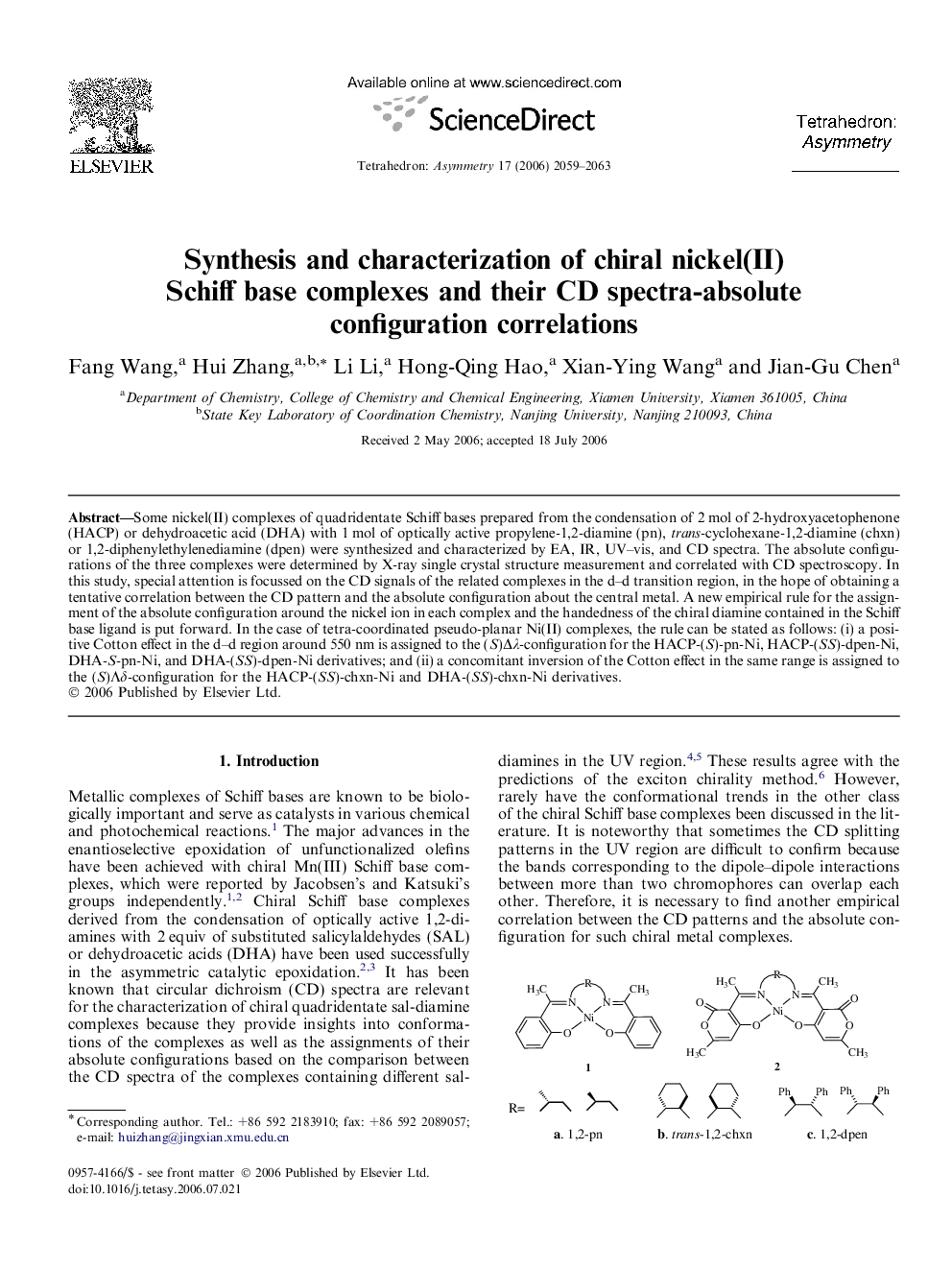| کد مقاله | کد نشریه | سال انتشار | مقاله انگلیسی | نسخه تمام متن |
|---|---|---|---|---|
| 1348226 | 980346 | 2006 | 5 صفحه PDF | دانلود رایگان |

Some nickel(II) complexes of quadridentate Schiff bases prepared from the condensation of 2 mol of 2-hydroxyacetophenone (HACP) or dehydroacetic acid (DHA) with 1 mol of optically active propylene-1,2-diamine (pn), trans-cyclohexane-1,2-diamine (chxn) or 1,2-diphenylethylenediamine (dpen) were synthesized and characterized by EA, IR, UV–vis, and CD spectra. The absolute configurations of the three complexes were determined by X-ray single crystal structure measurement and correlated with CD spectroscopy. In this study, special attention is focussed on the CD signals of the related complexes in the d–d transition region, in the hope of obtaining a tentative correlation between the CD pattern and the absolute configuration about the central metal. A new empirical rule for the assignment of the absolute configuration around the nickel ion in each complex and the handedness of the chiral diamine contained in the Schiff base ligand is put forward. In the case of tetra-coordinated pseudo-planar Ni(II) complexes, the rule can be stated as follows: (i) a positive Cotton effect in the d–d region around 550 nm is assigned to the (S)Δλ-configuration for the HACP-(S)-pn-Ni, HACP-(SS)-dpen-Ni, DHA-S-pn-Ni, and DHA-(SS)-dpen-Ni derivatives; and (ii) a concomitant inversion of the Cotton effect in the same range is assigned to the (S)Λδ-configuration for the HACP-(SS)-chxn-Ni and DHA-(SS)-chxn-Ni derivatives.
Discussions on a new empirical rule of correlation between the CD sign at the d–d transition region and the absolute configuration around the central metal are included.Figure optionsDownload as PowerPoint slide
Journal: Tetrahedron: Asymmetry - Volume 17, Issue 14, 28 August 2006, Pages 2059–2063